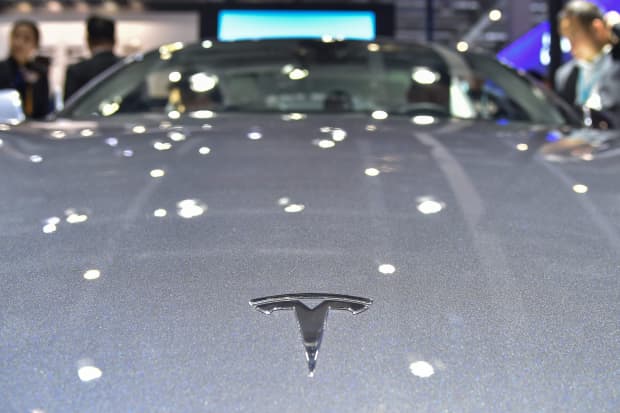
The Trump administration has already eased Obama-era emissions targets and offers minimal support for EVs, including Tesla. But Biden’s plan may hinge on fatter subsidies.
Getty Images
Electric vehicles are expected to fill America’s roads, but only if assisted with government subsidies. Whether they take over by the next decade or emerge more slowly hinges on the election winner.
Democratic candidate Joe Biden’s plan for the industry includes building more than a half-million charging stations by 2030. He pledges to restore the full EV tax credit and will promote stricter overall auto regulations that could push consumers toward emissions-light cars, SUVs and trucks.
President Donald Trump has loosened fuel-emission standards and has a plan for building a smaller number of charging facilities. His approach will support the fossil-fuel industry and, say some Republicans, will be friendlier for American wallets. When federal electric car tax credits were set to expire for GM and were zapped for Tesla TSLA,
Subsidies are still key for the maturing market.
“EVs need to be less expensive to compete. As they exist today, they will never make a meaningful dent in the marketplace without subsidies,” said Joe Wiesenfelder, executive editor for Cars.com.
“We predict a clear difference in the marketplace if Vice President Biden takes office,” he said. “If President Trump is reelected, EVs could once again falter or even retreat as they did under other Republican administrations.”
But Trump, if given another four years, may have to be more accommodating for an auto industry that sees the writing on the wall, say analysts: consumer habits are changing.
Read: Fracking and the ‘Green New Deal’: Here’s where Trump and Biden stand on climate change
If market performance is any indication, the stock market has been handicapping the political issue all year — and in favor of EV expansion. EV stocks have been newsmakers this year. The pioneering Tesla’s shares have surged more than 370% so far in 2020. They’ve gathered another round of analyst upgrades, though not without an argument over whether emissions credits and not pure profit potential are propping up share value.
In Tesla’s shadow, Fisker FSR,
Related: Fisker is going public: Five things to know about the electric-car maker ahead of its IPO
The Trump administration has already eased Obama-era targets and offers minimal support for EVs, calling for 5% of U.S. auto sales to be electric in any year from 2022 to 2026, according to Bloomberg New Energy Finance.
Under Biden’s proposed aim for emissions, the EV share of passenger vehicle sales would have to hit at least 25% by 2026, with electric-car sales reaching 4 million per year, Bloomberg NEF analysts, led by Aleksandra O’Donovan, said in a recent report.
“A Biden win, coupled with Democrats taking control of the Senate, has the potential to shift the trajectory of electric vehicle adoption for years while reversing some of the damage inflicted by the current administration,” O’Donovan and team said. Several razor-thin Senate races have made the chamber, currently under Republican control, too close to call ahead of Tuesday.
Either presidential winner may face a mixed Congress, but one that increasingly wants some progress on climate change and recognizes younger buyer interest in EVs. A majority of voters, including Republican-leaning women, voters of color and younger voters view climate change as a priority for both the next administration and Congress. An Economist/YouGov poll from late last month found that climate is the number three issue among all voters and is the number two issue for Democrats and young voters age 18-29.
Biden’s focus on EVs and environmental policies could also be fueled further as Democratic governors apply more energy behind these efforts on a local level, said Cars.com’s Wiesenfelder. He pointed to California Gov. Gavin Newsom and his ambitious announcement to ban the sale of new gasoline-powered vehicles by 2035.
Energy prices RB00,
Consistently low gas prices and tepid government support are two reasons Cars.com predicted last year that EVs would struggle to become mainstream in the U.S. even by 2030.
Read: GM and Ford knew about climate change 50 years ago, energy trade publication has uncovered
But it is Biden’s deeper climate policy portfolio that could change the landscape, even if not overnight, analysts said.
Biden will offer dedicated grants and funding to help manufacturers retool and build new factories “to help ensure U.S. global leadership in EV manufacturing, including EV components and batteries,” the candidate has said.
Notably, not all proposals and incentives have been free of criticism, which may complicate matters for Biden if he prevails. Public charging stations may help but for now consumer preference is to charge at home.
“And well-intentioned interventions can go wrong, such as when federal tax credits of $7,500 went to buyers of $100,000 EVs, offending allies as much as opponents,” said Wiesenfelder.